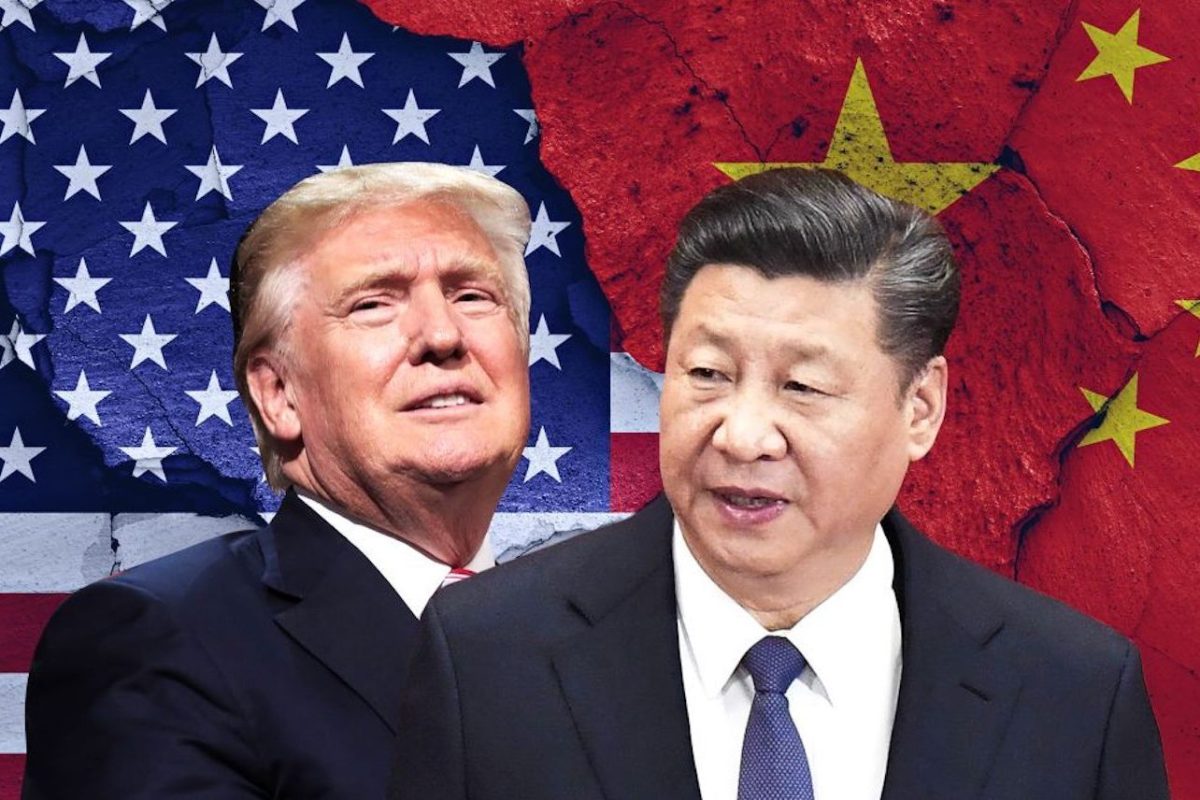China imposes new restrictions on US diplomats, as relations between the two countries go further downhill

A few minutes every morning is all you need.
Stay up to date on the world's Headlines and Human Stories. It's fun, it's factual, it's fluff-free.
Above and beyond the coronavirus blame game, a diplomatic row has rapidly escalated between the world’s two largest economies.
The diplomatic tussle between China and the United States carved another chapter as Beijing on Saturday, September 12, announced fresh restrictions on the activities of US diplomats in China, including those in Hong Kong.
According to a statement released on Friday by the Chinese Foreign Ministry, the new rules will apply to senior diplomats and other officials at the American Embassy in Beijing and all consulates in China.
“The US practice has severely violated international law and basic norms governing international relations and disrupted China-US relations and normal exchanges between the two sides,” said Zhao Lijian, a spokesman from the ministry.
“Once again we urge the US side to immediately correct its mistakes and lift the unreasonable restrictions imposed on the Chinese embassy and consulates and their staff,” Zhao said, adding that China would make “reciprocal responses” to the US actions.
The details of the curbs remained unspecified as of now. US diplomats already face travel restrictions in China and their access to university campuses is limited.
The US responded to Beijing’s decision by calling it an “escalation.”
China’s move comes as a retaliatory measure after the Trump administration earlier this month imposed sanctions on Chinese diplomats in the US, barring them from visiting American universities, holding cultural events with more than 50 people outside mission grounds, or meeting government officials without approval from the State Department.
The curbs were criticized by the Chinese Embassy in Washington, stating that the sanctions were “yet another unjustified restriction and barrier on Chinese diplomatic and consular personnel that runs counter to the self-proclaimed values of openness and freedom of the US side.”
The State Department also declared that it would take necessary action to ensure that all Chinese Embassy and consular social media accounts were “properly identified” as government accounts.
“We’re simply demanding reciprocity. Access for our diplomats in China should be reflective of the access that Chinese diplomats in the United States have, and today’s steps will move us substantially in that direction,” US Secretary of State Mike Pompeo told a news briefing on September 2.
Pompeo also stated that the State Department had informed governing boards of American universities to stay vigilant against threats posed by the Chinese Communist Party.
“These threats can come in the form of illicit funding for research, intellectual property theft, intimidation of foreign students and opaque talent recruitment efforts,” Pompeo added.
Washington’s sanctions on Chinese envoys are a part of the Trump administration’s crackdown against alleged Chinese influence operations and espionage. In the run-up to the November 3 presidential election, a tough stance against China has evolved as a key feature of President Donald Trump’s foreign policy paradigm.
Constant decline in US-China relations
The US-China relationship has constantly deteriorated since the COVID-19 pandemic broke out. Trump has repeatedly blamed China for not doing enough to control the outbreak, which was first reported in the Chinese city of Wuhan late last year.
Above and beyond the coronavirus blame game, a diplomatic row rapidly escalated between the world’s two largest economies.
In March, China barred American journalists from three major US publications – The New York Times, The Washington Post and The Wall Street Journal. The US also curtailed the number of scribes belonging to major Chinese news outlets. Around 60 reporters were expelled from American soil while the visa term for others was reduced from one year to three months.
Tensions increased sharply in July when the US government ordered China to close its consulate in Houston, Texas, following allegations by Secretary of State Mike Pompeo and top American officials that the consulate was involved in Beijing’s espionage operations in the US and theft of intellectual property. The consulate was officially closed on July 24.
“The sum total of the Houston consulate’s activities went well over the line of what we’re willing to accept, and unless we disrupted it, it threatened to become even more aggressive in Houston and other Chinese consulates nationwide," a senior Justice Department official said on July 24.
Shortly after, China countered with an order to close the US consulate in the southwestern city of Chengdu, accusing the US of interfering in its internal affairs and harming national security interests.
Washington and Beijing have been at loggerheads over a multitude of other issues including trade, Taiwan and Hong Kong.
China’s introduction of a controversial new national security law in Hong Kong in June drew severe condemnation from the US, resulting in the blacklisting of some high-ranking Hong Kong officials and China’s top enforcers, who the US accused of suppressing freedom and democratic processes in Hong Kong.
In July, the US imposed sanctions on three senior members of the Chinese Communist Party (CCP) for the alleged mass internment of Uighurs and human rights abuses of ethnic Kazakhs and other minority groups in Xinjiang. It provoked China to pass sanctions against several prominent American citizens including Republican senators Ted Cruz and Marco Rubio, and Kenneth Roth and some other high profile officials.
Moreover, the US has accused Chinese tech firms and platforms such as Huawei Technologies and TikTok of working at the behest of the Chinese Communist Party, an allegation that Beijing and Bytedance Ltd., the parent company of TikTok, have both denied. In August, Trump passed two executive orders prohibiting transactions with Chinese companies ByteDance and WeChat, which is owned by Tencent Holdings Ltd.
Have a tip or story? Get in touch with our reporters at tips@themilsource.com




Comments ()